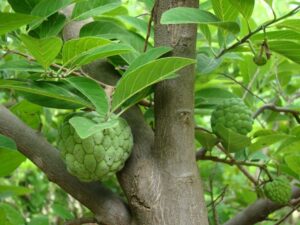Professor Ademola Ayeleso from Biochemistry programme, College of Agriculture Engineering and Science, Bowen University, Iwo, Osun State, has advocated commercialisation of medicinal plant plantations in the country.
He remarked while delivering the 20th inaugural lecture of the university, which was recently held.
According to him, it has become essential for the government to encourage research on medicinal plants, so that farmers can explore the advantages of the fertile land with which the country is endowed, further boosting the nation’s export value in the area of medicinal plants’ commercial production.
Prof Ayeleso identifies Medicinal Plants in Nigeria
Prof. Ayeleso identified numerous medicinal plants that Nigerian farmers could invest in commercially to increase their local and global income sources.
He said research has shown that garlic, red palm oil, rooibos, Monodora tenuifolia seeds, Nauclea latifolia leaves, Taraxacum officinale leaves, Parquetina nigrescens leaves, and many more could be explored for the management of various ailments, including diabetes mellitus, as they are readily available.
Speaking further in his lecture, entitled “The Good Samaritan Effect: Medicinal Plants as Oxidative Stress Modulators in Diabetes Management,” Professor Ayeleso stated that his passion for plant-based medicine is rooted in the belief that nature holds the key to unlocking better health outcomes.

He added that he had been dedicated to exploring the therapeutic potentials of medicinal plants in combating diabetes mellitus and obesity, using animal, cell line and Drosophila melanogaster models.
He noted that as he continued to explore the antidiabetic potential of medicinal plants, he also delved into the investigation of the mechanism of exercise as a non – pharmaceutical approach in the management of diabetes mellitus and obesity.
Professor Ayeleso has pledged that his research would continue to strengthen the incorporation of plants-based medicine into the health care system in Africa and around the world.
According to him, he would continue to unveil the molecular mechanisms through which medicinal plants exert their therapeutic actions, adding that he would focus on developing healthcare products from plants, especially for the treatment of metabolic diseases such as diabetes mellitus, obesity, and cardiovascular diseases.
Needs for regulatory framework
Ayeleso called on governments at all levels, universities, and research institutions in the country to establish a regulatory framework for the use and abuse of medicinal plants. He also pleaded for the facilitation of research collaboration between indigenous people with a strong tradition of knowledge of medicinal plants and scientists.
The dean, in his lecture, advocated for the provision of funds for research, fellowships, and scholarships in medicinal plants. He also urged the federal government to allow private universities to access TETFUND research grants.
Prof. Ayeleso also encouraged collaboration with healthcare professionals to integrate standardised herbal products into healthcare, as well as the creation of a more robust national medicinal plant database to document and conserve Nigeria‘s plant diversity.
He concluded that there is a need for the establishment of public–private partnerships between industries and research institutions to facilitate funding, development and commercialisation of medicinal plants–based products.











